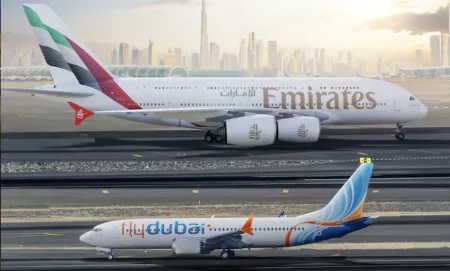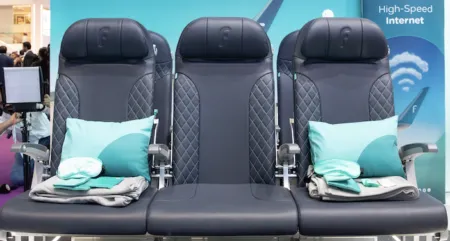A flight safety expert is warning that a recent UK ruling on compensation payments for air passengers delayed by aircraft technical problems has the potential to “drag the industry to its knees”.
Stuart McKie-Smith, a former head of safety at Flybe who has also chaired the UK Flight Safety Committee, said the judgement could pressurize flight crews into making hasty decisions about an aircraft’s safety. The High Court ruled that Jet2 was liable to compensate a passenger after his flight from Manchester to Malaga was delayed because of a wiring defect on the aircraft.
According to McKie-Smith, following that judgement legal commentators have warned the commercial airline industry to prepare for a huge rise in numbers of passengers claiming compensation for flight delays caused by technical problems even, as in the original Jet2 case, those issues are “unforeseen and unforeseeable”.
“The UK aviation industry has an enviable record on safety which has improved dramatically over the last 40 years,” said McKie-Smith, who is now SVP of safety & security at Vistair Systems, a provider of airline management, safety and compliance software. “In my experience no airline will knowingly operate aircraft that are technically unserviceable and not fit for the task.
“Concerns over delays are always forefront in the crews’, and in particular the captain’s, minds and they will do their utmost to safely depart on time – after all, time really is money in the airline industry. As a result decisions to delay are never taken lightly and are always a source of frustration for the airline employees trying to do what they are paid to do.
“However, in the interests of flight safety, if the aircraft has a technical problem and should not fly, then the decision to do so should not be open to debate.”
McKie-Smith does not believe the consequences for airlines potentially facing huge compensation payouts for aircraft technical delays has been properly considered.
“Given the commercial realities of running an airline, pressure on margins and on time performance, and the way it works, particularly in the low-cost sector, is to keep the aircraft in the air, and reduce ground time to the minimum, one has to wonder about this judgement,” he said.
“Add to this the spectre of hundreds or thousands of passengers making compensation claims for technical delays then you have a potential situation that could drag the industry to its knees.”
McKie-Smith believes that after years of great work developing and promoting safety in the industry, there is now the very real risk of it taking a giant leap backwards on the basis of economic viability, not least because of the impacts on airlines’ insurance.
“It must be virtually impossible to insure against delays and claims like this,” he said. “Apart from flight safety considerations, where is the money coming from? The passengers of course, and prices for flights are bound to increase, and the component manufacturers will also be braced for requests for compensation from the airlines and the manufacturers in turn will claim poor servicing by the airline – the list could be endless.”
He added: “Certainly there is an argument for passengers to be able to claim for some form of compensation if it can be proved that the airline could have reasonably prevented the delay, but if it is a question of an unforeseeable part failure, then some discretion must surely be applied.
“The less reputable airlines will gain little sympathy from the courts or traveling public if they are at fault, but the ones who are really trying hard should not be penalized for unforeseen or unexpected component failures. This latest judgement is less than helpful.”




